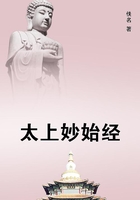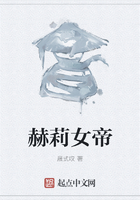Again, Thackeray contributed the notes and critical apparatus to Cruikshank's version. For this the internal evidence of style is overpowering: no other man wrote in the manner and with the peculiar humour of Mr. Titmarsh. In the humble opinion of the present writer these Notes ought to be appended to Mr. Thackeray's version of 'Lord Bateman.' Finally, Mr. Sala was wrong in supposing that Mr. Thackeray took liberties with the text received from oral tradition.
What was the origin of that text? Professor Child, in the second part of his 'English and Scottish Popular Ballads'* lays before us the learning about Lord Bateman, Lord Bedmin, Young Bicham, Young Brechin, Young Bekie, Young Beichan and Susie Pie (the heroine, Sophia, in Thackeray), Lord Beichan, Young Bondwell, and Markgraf Backenweil; for by all these names is Lord Bateman known. The student must carefully note that 'Thackeray's List of Broadsides,' cited, is NOT by Mr. W. M. Thackeray.
*Pt. ii. p. 454 et seq., and in various other places.
As the reader may not remember the incidents in the Thackeray, Cruikshank, and Old Woman version (which represents an ancient ballad, now not so much popularised as vulgarised), a summary may be given. Lord Bateman went wandering: 'his character, at this time, and his expedition, would seem to have borne a striking resemblance to those of Lord Byron. . . . SOME foreign country he wished to see, and that was the extent of his desire; any foreign country would answer his purpose--all foreign countries were alike to him.'-
-(Note, apud Cruikshank.) Arriving in Turkey (or Torquay) he was taken and fastened to a tree by his captor. He was furtively released by the daughter of 'This Turk.' 'The poet has here, by that bold license which only genius can venture upon, surmounted the extreme difficulty of introducing any particular Turk, by assuming a foregone conclusion in the reader's mind; and adverting, in a casual, careless way, to a Turk hitherto unknown as to an old acquaintance. . . . "THIS Turk he had" is a master-stroke, a truly Shakespearian touch'--(Note.) The lady, in her father's cellar ('Castle,' Old Woman's text), consoles the captive with 'the very best wine,' secretly stored, for his private enjoyment, by the cruel and hypocritical Mussulman. She confesses the state of her heart, and inquires as to Lord Bateman's real property, which is 'half Northumberland.' To what period in the complicated mediaeval history of the earldom of Northumberland the affair belongs is uncertain.
The pair vow to be celibate for seven years, and Lord Bateman escapes. At the end of the period, Sophia sets out for Northumberland, urged, perhaps, by some telepathic admonition. For, on arriving at Lord Bateman's palace (Alnwick Castle?), she summons the proud porter, announces herself, and finds that her lover has just celebrated a marriage with another lady. In spite of the remonstrances of the bride's mamma, Lord Bateman restores that young lady to her family, observing She is neither the better nor the worse for me.
So Thackeray and Old Woman. Cruikshank prudishly reads, O you'll see what I'll do for you and she.
'Lord Bateman then prepared another marriage, having plenty of superfluous wealth to bestow upon the Church.'--(Note.) All the rest was bliss.
The reader may ask: How did Sophia know anything about the obscure Christian captive? WHY did she leave home exactly in time for his marriage? How came Lord Bateman to be so fickle? The Annotator replies: 'His lordship had doubtless been impelled by despair of ever recovering his lost Sophia, and a natural anxiety not to die without leaving an heir to his estate.' Finally how was the difficulty of Sophia's religion overcome?
To all these questions the Cockney version gives no replies, but the older forms of the ballad offer sufficient though varying answers, as we shall see.
Meanwhile one thing is plain from this analysis of the pot-house version of an old ballad, namely, that the story is constructed out of fragments from the great universal store of popular romance. The central ideas are two: first, the situation of a young man in the hands of a cruel captor (often a god, a giant, a witch, a fiend), but here--a Turk. The youth is loved and released (commonly through magic spells) by the daughter of the gaoler, god, giant, witch, Turk, or what not. In Greece, Jason is the Lord Bateman, Medea is the Sophia, of the tale, which was known to Homer and Hesiod, and was fully narrated by Pindar. THE OTHER YOUNG PERSON, the second bride, however, comes in differently, in the Greek. In far-off Samoa, a god is the captor.* The gaoler is a magician in Red Indian versions.**
*Turner's 'Samoa,' p. 102.
**For a list, though an imperfect one, of the Captor's Daughter story, see the Author's Custom and Myth, pp. 86-102.
As a rule, in these tales, from Finland to Japan, from Samoa to Madagascar, Greece and India, the girl accompanies her lover in his flight, delaying the pursuer by her magic. In 'Lord Bateman' another formula, almost as widely diffused, is preferred.
The old true love comes back just after her lover's wedding. He returns to her. Now, as a rule, in popular tales, the lover's fickleness is explained by a spell or by a breach of a taboo. The old true love has great difficulty in getting access to him, and in waking him from a sleep, drugged or magical.
The bloody shirt I wrang for thee, The Hill o' Glass I clamb for thee, And wilt thou no waken and speak to me?
He wakens at last, and all is well. In a Romaic ballad the deserted girl, meeting her love on his wedding-day, merely reminds him of old kindness. He answers--
Now he that will may scatter nuts, And he may wed that will, But she that was my old true love Shall be my true love still.















